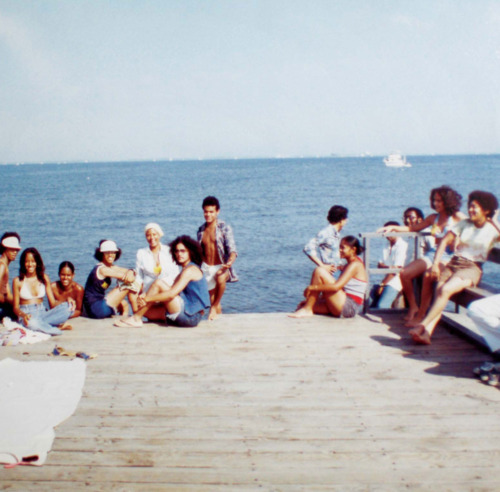
Booze has always been prevalent when I’ve seen The Brixton Academy live, the band popping open bottles of Champagne to share with the crowd or downing shots post-set. Yet their January 28 show at Shibuya’s Womb – which, for the uninformed, is the place those deaf kids make out in the film Babel – was soaked in more alcohol than usual. Seeing every member of the group pop open a bottle of bubbly, corks comically smacking into Womb’s extravagant disco ball, or the band’s guitarist drunkenly spank away at his bongos seemed appropriate given that this was the final stop on their Bright As Diamonds tour, one last gig in front of a hometown crowd.
Yet this sea of liquor flowed because this turned out to be the final Brixton Academy show featuring the band’s current incarnation – the group announced midway through that this show would be there last, to a girl-heavy wave of shock. Although a three-person version of the group will play a show in March, post that the members will remain in music, but in what form they don’t know. With this news, though, a typically drunk Saturday show turned into one last hurrah for one of the best live groups in Japan today.
This impromptu finale boasted a pretty great undercard, too. Kyoto chillwavers Hotel Mexico opened everything up with a whirling set that came with an appropriate light show. Live…and blessed by Womb’s tip-top sound system…the group sounds bigger live, a song like “Dear Les Friends” even stronger than in recorded form. Nagoya’s Orland followed, a mess of 80’s synths tripping over one another to create deliberately nostalgic dance music (the fact half of the original Tron played out behind them drove the point home – we are Orland, and we love the 80s). The group is fine, but sharing a bill with similar-sounding Brixton Academy exposes their biggest weakness – whereas Brixton place earnest words over their New Wave hodgepodge and come off as almost embarrassingly sincere, Orland just sound like the music you sometimes hear in a Tim And Eric sketch.
The Telephones, out of place on this bill both in terms of sound and popularity, gesticulated all over the stage next, an endless barrage of aggressive rock guitar, shouting and posing. The group is undeniably energetic, as evidenced by the sort of crowd I would have loved to be in the middle of when I was 19. Yet, as a cynical 20-something, I heard a group with buckets of energy and like three song blueprints done over and over again. Canopies And Drapes came next, joined by several members of The Brixton Academy. When I saw her in Nagoya in November, her set surprised me because she (and Brixton) were able to turn three-fourths of her dreamy music into something funky. That Nagoya show was great – her set at Womb, not quite as memorable. Opening with her two weakest live numbers (the shoegazey “Stars In Bloom” and “Live In The Snow Globe,” the one instance where injecting funk into a song detracts from it, as “Snow Globe” is a lyrical wonder), things got better with the jaunty “Perfect Step,” and she has a great set closer with “Sleeping Under The Bed” which, moment of honesty, I have yet to get sick of.
Yet this Saturday night belonged to The Brixton Academy. At this point, I’ve seen them three times in the past three months, and their show barely changes each time – they open with the bongo-assisted “Neons Bright” from last year’s Bright As Diamonds before diving into the best cuts from that LP and their debut Vivid, with the long-burning “Nightclub” popping up near the end of the set. Yet despite knowing what to expect, Brixton Academy’s skill and energy turns what should have been choreography by now into a still-captivating show. “In My Arms” remains delirious, ”Youth” still demands fists pumped into the sky and “So Shy” remains a slice of triumphant sadness.
This wasn’t just another (great) Brixton Academy show, though, but a surprise finale. Once the sounds of shock faded, the remaining songs seemed more urgent, imbued with something special that words can’t really capture (uhhhh you had to be there?). They dusted off older songs I hadn’t heard at the previous two shows – they broke out songs I’ve never heard period – and gave the crowd what they wanted. Corks flew, an encore happened and then they left the stage for the last time.
So what’s The Brixton Academy’s legacy? Two albums ranging from “pretty good” to “great,” an EP and some singles, not to mention an incredible live show. Vivid, their debut, stands with any 80s-aping album of the last half of the decade, while we named “So Shy” the best song of 2010 and stick by it fully. They did pretty decently for a band their size in Japan, but The Brixton Academy always struck me as a group that could have gotten a lot of looks from the West too, given the 80’s sound and earnestness. Yet they never really did, unfortunately, but leave behind a great collection of music and, for me personally, great memories of wildin’ out at a tiny Nagoya club. They deserved those drink for sure Saturday night.
Hey, someone uploaded a video of the band playing “So Shy” at this even!
[youtube=”http://www.youtube.com/watch?v=QHHRQuhguIU”]




